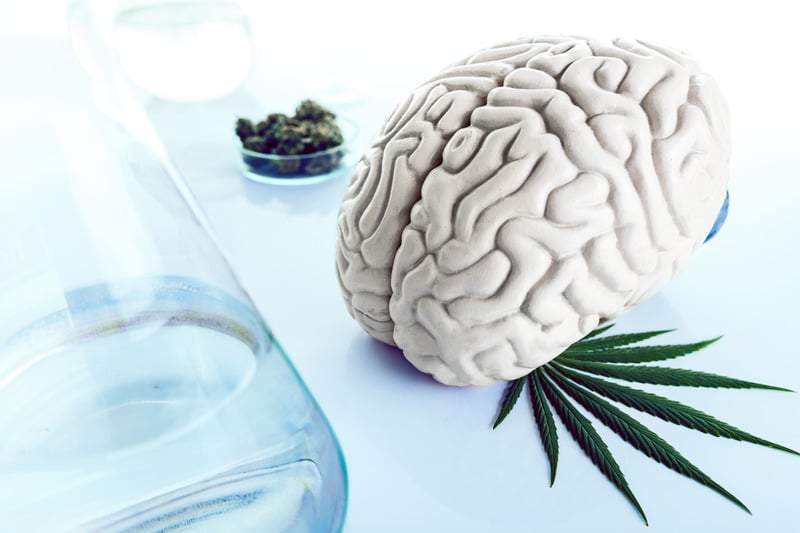How Does Marijuana Affect Motivation and Brain’s Dopamine
- POSTED ON April 1, 2024
- BY TORONTO WEED DELIVERY

Does marijuana affect motivation? Delving more profound, one moment, cannabis users are riding high on euphoria; the next, they’re grappling with long-term brain changes.
But here’s where it gets really interesting. The stereotype of the ‘lazy stoner’ has persisted for ages. Yet recent studies tell a different story.
Does marijuana affect motivation? Could our assumptions have been off the mark this whole time? That’s what we thought we knew about motivation, and cannabis was just…smoke?
And then there’s youth – those not fully formed humans whose brains are still under construction. How does cannabis affect them differently?
Additionally, pondering ways to lessen the negative impacts introduces a fresh perspective on conscientious consumption.
Sounds complex? Absolutely.
Yet, nestled within this intricate web, we uncover intriguing glimpses into the essence of human actions, well-being, and avenues for progress.
Table of Contents
The Science of Cannabis and Dopamine
Embarking on exploration, we'll uncover the interplay between cannabis and our brain's dopamine pathways, influencing our spirits and drive.
Ever wonder why lighting up feels so good or what happens if you make it a regular gig? You're in the right spot.
Short-Term Effects on Dopamine Release
Puffing on that joint does something magical to your brain. In the short term, marijuana kick-starts dopamine production.
This is your brain's way of giving you a high-five, resulting in feelings of euphoria, well-being, and all-around calmness. It's like your brain throwing a little party every time you light up.
Why does this matter?
- Dopamine is often called the "feel-good" chemical for a reason.
- The quick hit of satisfaction from lighting up a joint comes down to how it sends dopamine levels soaring.
Long-Term Consequences for Regular Cannabis Users
Buckle up because here's where things get twisty. Making cannabis an everyday guest can mess with your brain's reward circuitry over time.
Long-term use changes how much natural dopamine gets produced - think less confetti at the party.
Your ventral striatum (a key player in anticipating rewards) doesn't buzz as it used to, which means ordinary pleasures might not cut it anymore for long-term cannabis users; they could be left chasing highs just to feel okayish normality again.
Bottom line:
- In moderation? Cannabis lights up those pleasure centers like nobody's business.
- Taking it from occasional guests to couch-crashing roommates? That could dim down life's other joys.
The Myth of the Lazy Stoner
How about we shatter a few stereotypes today, huh? The image of cannabis users as 'lazy stoners' is outdated and, frankly, inaccurate.
But where does motivation fit into this picture?
Cannabis Use Disorder and Motivation
It's time to dive a bit deeper. Some folks believe that regular cannabis use zaps your drive. But it's not that simple.
A study from University College London shows long-term heavy usage might mess with your dopamine levels - that's the stuff in your brain that helps you feel pleasure and go after goals.
So, if you're leaning towards what they call borderline cannabis dependence, chances are you're producing less dopamine than those who don't partake or who only do socially.
Less dopamine can mean less get-up-and-go for things like work or hobbies.
Beyond the Stereotype
We've all heard tales of 'lazy stoners,' but let's set the record straight: Contrary to popular belief, numerous cannabis enthusiasts maintain bustling and fruitful lifestyles.
- Amotivational syndrome: This term gets tossed around a lot when talking about cannabis users lacking ambition. Yet there's little solid evidence linking moderate use directly to lost or reduced motivation.
- Lack of motivation: It's not so much about losing all will to do anything; it could be more about finding different interests or changing priorities over time.
- Stereotype: Calling someone a 'lazy stoner' ignores their unique experiences and contributions—many users are just as driven as non-users.
In short, while excessive consumption might affect how jazzed up you feel about going after certain goals due to changes in brain chemistry like reduced dopamine production (especially among cannabis-use disorder) cases), painting all enthusiasts with the same brush misses out on nuance—and truth.
Let's aim for an accurate representation rather than sticking to stereotypes.
Key Takeaway:
Let's bust the 'lazy stoner' myth. Cannabis might affect dopamine and motivation, especially in heavy use, but many cannabis users are active and driven. It's about understanding nuances rather than sticking to outdated stereotypes.
Cannabis Addiction and Mental Health
Exploring the shadowy depths of how indulging beyond a simple puff can spark significant mental health challenges. It's not all chill vibes and snack raids.
Cognitive Impairment Risks
So, here's the deal: toking up on the regular? It might mess with your brain in ways you didn't bargain for.
We're talking cognitive impairment, folks. Long-term cannabis use doesn't just fade those bad memories; it could be dimming your brain's ability to remember new ones, too.
Think about this: chronic cannabis consumption is like inviting a fog into your mind that thickens over time. This isn't just me rambling – studies suggest that long-term use can seriously impact cognitive functions.
Memory, attention span, decision-making? All could take hits harder than the one from your bong.
Seeking Professional Help
If you find yourself caught in a haze of constant use and feel it's clouding more than just your room with smoke - it might be time to reach out for help.
When things get too heavy to handle alone, there's no shame in asking for assistance. Finding someone who gets what you're going through makes all the difference.
Seeking help from a therapist or healthcare professional versed in cannabis abuse, well... it's kind of like finding that perfect strain – but instead of getting high, you're aiming higher towards better mental health.
- About 9% end up addicted,
- Risks rise for dipping into other drugs
- Treat your magnificent mind with the respect it merits, steering clear of paths that could dim its sparkle.
Remember, You've got options. No matter where you are on this journey.
We've seen enough movies to know how easily "just once" becomes every day till suddenly, we don't recognize ourselves without it.
But here's some real talk: reaching out before hitting rock bottom shows strength beyond measure - so let's do this together.
And hey — there are brighter days ahead filled with clarity and joy worth striving for.
Stay strong; I believe in us.
Key Takeaway:
Lighting up can dim your brain's ability to remember and think clearly, but seeking help is a strong move toward brighter days. Let's tackle this together for clarity and joy.
Impact on Young Brains
Analyzing how cannabis affects adolescents differently than adults due to brain development stages.
Adolescent Vulnerability
Why younger individuals are more susceptible to the negative effects of cannabis.
We've all been there, thinking we're invincible during our teenage years. But when it comes to cannabis use at a younger age, this mindset can lead us down a slippery slope.
Here's the deal: Young brains aren't just mini-adult brains; they're in the midst of an intense developmental phase.
Thus, adolescents are especially susceptible to the effects of drugs such as marijuana due to their brains being in a critical stage of growth.
"But why?" you might ask.
The answer lies in science - particularly how adolescent brains are still under construction.
Critical areas responsible for decision-making and impulse control are among the last parts of the brain to mature, making teenagers more prone to risky behaviors, including experimenting with drugs like marijuana.
This isn't just talk; studies back it up. Research shows that regular cannabis use during adolescence can alter key brain structures involved in memory, learning, and impulse control, compared with those who wait until adulthood before lighting up for the first time.
- Cannabis messes with dopamine levels – that feel-good chemical your body naturally produces.
- It hinders cognitive functions, which could impact academic performance.
- Sadly enough, early weed smokers have shown increased risks of developing mental health issues later on.
Harm Reduction Strategies for Cannabis Users
Let's get real about cannabis. It's not all chill vibes and snack binges. Like anything, moderation is key.
Here's how to keep it balanced and spot when things might be tipping the scales.
Balancing Use with Healthy Habits
Mixing weed into your life without letting it take over? It's doable. Here are some tips:
- Set clear boundaries: Decide on your limits before lighting up.
- Maintain a routine: Keep up with exercise, hobbies, and social activities that don't revolve around cannabis.
- Eat well and stay hydrated: Munchies can be fun, but opt for healthier snacks most of the time.
- Sleep matters: Try not to rely on cannabis to catch those Zs every night.
Balancing isn't a complex concept; it's about striking the right equilibrium.
Integrating these habits helps ensure that you're using cannabis as part of a healthy lifestyle rather than letting it use you.
Explore Cannabis Insights with Toronto Weed Delivery!
Cannabis and dopamine engage in an intense tango, influencing our emotions and drive. The 'lazy stoner' stereotype? More like a misunderstanding of complex neurochemical ballet.
Young brains develop under cannabis influence differently than adults, weaving additional complexity into the ongoing story of youth and their evolving minds.
Discover more insights on "How Does Marijuana Affect Motivation?" with Toronto Weed Delivery. Call us today!
FAQs about Does Marijuana Affect Motivation?
Does CBD decrease motivation?
No, CBD doesn't zap your drive. It impacts the body differently than THC, focusing more on calming effects without messing with motivation.
Can marijuana cause anhedonia?
Yes, heavy pot use can dull your joy buzzers over time. This means things that used to make you happy might not cut it anymore.
RECENT POSTS
- Exploring the Importance of the Oak Ridges Moraine
- Shopping Day Out at Richmond Hill’s Hillcrest Mall
- Why the 140th Anniversary Statue Matters to Richmond Hill
- Experience Faith and Community at Richmond Hill United Church
- Explore Mill Pond Park: A Haven for Richmond Hill Relaxation
- Discover Afternoon Tea at Richmond Hill Heritage Centre
- Explore Richmond Green Sports Centre and Park for Top Fun
- Explore Lake Wilcox Park: A Haven for Outdoor Enthusiasts
- Events at Richmond Hill Centre for the Performing Arts
- Exploring David Dunlap Observatory: A Richmond Hill Gem
- Top Scenic Walking Trails Around Rouge Valley
- Discover Peaceful Walking Trails in Markham for Relaxation

